
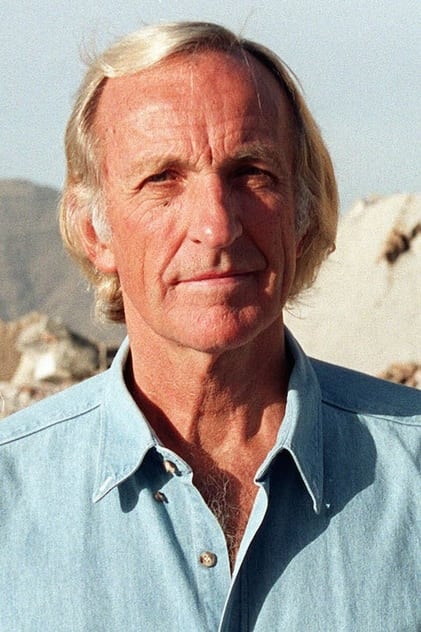
John Pilger
Born: October 9, 1939
Died: December 30, 2023
in Sydney, Australia
Died: December 30, 2023
in Sydney, Australia
John Richard Pilger was an Emmy Award winning Australian journalist based in London. Pilger lived in the United Kingdom from 1962. Since his early years as a war correspondent in Vietnam, Pilger was a strong critic of American, Australian and British foreign policy, which he considered to be driven by an imperialist agenda. Pilger also criticised his native country's treatment of indigenous Australians and the practices of the mainstream media. In the British print media, he had a long association with the Daily Mirror, and wrote a fortnightly column for the New Statesman magazine.
Pilger twice won Britain's Journalist of the Year Award, in 1967 and 1979. His documentaries, screened internationally, have gained awards in Britain and worldwide. He also received several honorary doctorates, and was a visiting professor at Cornell University.
Pilger twice won Britain's Journalist of the Year Award, in 1967 and 1979. His documentaries, screened internationally, have gained awards in Britain and worldwide. He also received several honorary doctorates, and was a visiting professor at Cornell University.
Movies for John Pilger...
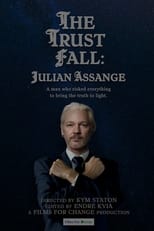
Title: The Trust Fall: Julian Assange
Character: Himself
Released: January 25, 2024
Type: Movie
Examining the meaning and significance of the insights that WikiLeaks shared with the world, the resulting behaviour of the governments involved, the extraordinary personal risk taken by Assange, and the wider fundamental issues around press freedom that affect all of us and our right to know.


Title: The Dirty War on the NHS
Released: November 29, 2019
Type: Movie
John Pilger unearths the hidden agenda behind the NHS crisis.

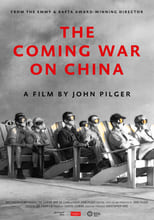
Title: The Coming War on China
Released: December 5, 2016
Type: Movie
The Coming War on China is John Pilger's 60th film for ITV. Pilger reveals what the news doesn't - that the United States and the world's second economic power, China (both nuclear armed) are on the road to war. Pilger's film is a warning and an inspiring story of resistance.

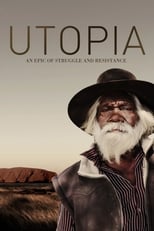
Title: Utopia
Character: Himself
Released: November 15, 2013
Type: Movie
Documentary by John Pilger looks at the awful truth behind white Australia's dysfunctional relationship with Indigenous Australians

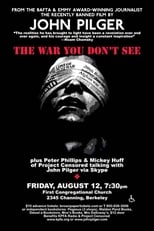
Title: The War You Don't See
Released: December 14, 2010
Type: Movie
This film investigates how the media has reported war, from the First World War to the present day.


Title: The War on Democracy
Character: Self
Released: June 15, 2007
Type: Movie
Set both in Latin America and the United States, the film explores the historic and current relationship of Washington with countries such as Venezuela, Bolivia and Chile. Pilger says that the film "...tells a universal story... analysing and revealing, through vivid testimony, the story of great power behind its venerable myths. It allows us to understand the true nature of the so-called "war on terror". According to Pilger, the film’s message is that the greed and power of empire is not invincible and that people power is always the "seed beneath the snow".

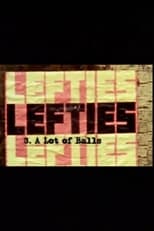
Title: Lefties: A Lot Of Balls
Character: Self
Released: February 22, 2006
Type: Movie
News on Sunday was a left-wing tabloid that launched to great fanfare in 1987 and went bankrupt just eight weeks later. It was one of the boldest business ventures ever attempted by the far left and it was a disaster. A group who met through a tiny left-wing faction called Big Flame were convinced it was possible to market a left-wing mass-circulation newspaper. They were led by ex-Ford worker Alan Hayling (now head of BBC Documentaries) under the editorial leadership of John Pilger, who walked out before the paper had even launched.

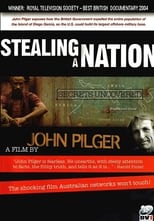
Title: Stealing a Nation
Character: Himself
Released: January 1, 2004
Type: Movie
This tells a story literally 'hidden from history'. In the 1960s and 70s, British governments, conspiring with American officials, tricked into leaving, then expelled the entire population of the Chagos islands in the Indian Ocean. The aim was to give the principal island of this Crown Colony, Diego Garcia, to the Americans who wanted it as a major military base. Indeed, from Diego Garcia US planes have since bombed Afghanistan and Iraq. The story is told by islanders who were dumped in the slums of Mauritius and in the words of the British officials who left a 'paper trail' of what the International Criminal Court now describes as 'a crime against humanity'

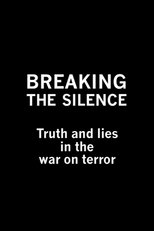
Title: Breaking the Silence: Truth and Lies in the War on Terror
Released: September 21, 2003
Type: Movie
A critical documentary about the war on terror since 9-11.


Title: Palestine Is Still the Issue
Character: Self - Presenter
Released: January 6, 2003
Type: Movie
A documentary about the Israeli-Palestinian conflict that has lasted for more than 50 years. Contains some interviews with the children in this conflict.

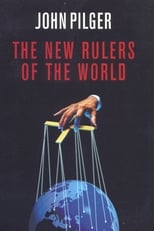
Title: The New Rulers of the World
Released: July 18, 2001
Type: Movie
The myths of globalisation have been incorporated into much of our everyday language. "Thinking globally" and "the global economy" are part of a jargon that assumes we are all part of one big global village, where national borders and national identities no longer matter. But what is globalisation? And where is this global village? In 2001, John Pilger made 'The New Rulers of the World', a film exploring the impact of globalisation. It took Indonesia as the prime example, a country that the World Bank described as a 'model pupil' until its 'globalised' economy collapsed in 1998. Globalisation has not only made the world smaller. It has also made it interdependent. An investment decision made in London can spell unemployment for thousands in Indonesia, while a business decision taken in Tokyo can create thousands of new jobs for workers in north-east England.


Title: Paying the Price: Killing the Children of Iraq
Released: January 1, 2000
Type: Movie
An analysis of the effect of economic sanctions on Iraq.


Title: Welcome to Australia
Released: December 2, 1999
Type: Movie
Welcome to Australia is a 1999 Carlton Television documentary, written and presented by John Pilger, which was directed and produced by Alan Lowery, and charts the history of injustice endured by indigenous Australians in the context of the build-up to the Sydney 2000 Summer Olympic Games.


Title: The Timor Conspiracy (Update)
Released: January 26, 1999
Type: Movie
1999. An updated version of the 1994 film that exposed the betrayal of the East Timorese by the international community.


Title: Apartheid Did Not Die
Released: January 1, 1998
Type: Movie
An analysis of South Africa's new, democratic regime.

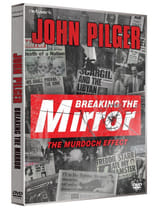
Title: Breaking The Mirror: The Murdoch Effect
Character: Himself - Presenter
Released: February 18, 1997
Type: Movie
This 1997 film considers the downfall of the Daily Mirror, the newspaper Pilger worked on for 23 years: a popular, intelligent tabloid once read by a quarter of the British population and which genuinely reflected its readers' concerns. Pilger asks why the qualities seen in the paper prior to the 1970s are no longer apparent, examining the contraction of the press following the Sun's symbolic move to Wapping, coverage of the Hillsborough disaster, the fate of the Daily Mirror under Robert Maxwell, and the stranglehold of Rupert Murdoch.


Title: Inside Burma: Land of Fear
Character: Himself
Released: May 14, 1996
Type: Movie
“On the surface, everything appears serene... But Burma is also a secret country, isolated for the past 34 years since a brutal dictatorship seized power, the assault on its people all but forgotten. To tell their story, we had to go undercover. What we found was a land of fear.”


Title: Vietnam: The Last Battle
Released: April 25, 1995
Type: Movie
In 1975, John Pilger reported the end of the Vietnam War from the American Embassy in Saigon, where the last American troops fled from the roof-top helicopter pad. He was made Journalist of the Year and International Reporter of the Year for his reporting of the Vietnam War over a period of almost ten years. In 1995’s ‘Vietnam: The Last Battle’, Pilger returns to Vietnam to review those twenty years, seeking to rescue something of Vietnamese past and present from Hollywood images which pitied the invader while overshadowing one of the most epic struggles of the 20th century. And with the embargo on the country now lifted by President Clinton, he describes Vietnam's latest battle against the economic plunder of the country by the United States and other powerful countries

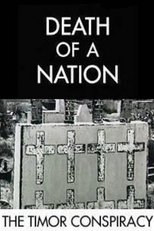
Title: Death of a Nation: The Timor Conspiracy
Released: March 18, 1994
Type: Movie
The sensational expose of the complicity of Britain, USA and Australia in the continuing genocide in East Timor.


Title: Flying the Flag, Arming the World
Released: January 1, 1994
Type: Movie
Britain is still a world leader. Indeed it has twenty percent of a world market, second only to the United States. And this industry is considered so important by the government that it consumes almost half of all research and development funds. Strangely it produces not consumer goods that people want, but machines that hardly any of us use or want to use. Moreover, for all its’ preeminence, its’ future is uncertain and depends to a large degree on secret deals with some of the most corrupt and brutal regimes on Earth. One of the biggest manufacturing industries in Britain at the close of the century is ARMS. John Pilger and David Munro look behind the political rhetoric and discover the world of international arms dealing.


Title: Cambodia: Return to Year Zero
Released: April 20, 1993
Type: Movie
John Pilger shows how the UN has allowed the Khmer Rouge to grow stronger.

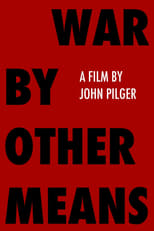
Title: War By Other Means
Released: January 1, 1992
Type: Movie
War By Other Means is a 1992 television documentary by John Pilger and David Munro concerning loans to developing countries from the World Bank which cause them to pay more interest then they ever receive in international aid ("debt as a weapon"). It also analyses Structural Adjustment Programs, which are proclaimed to enable countries to compete in the global economy, but have the effect of lowering wages which results in the transfer of wealth from poor to rich. It features Dr. Susan George, author of The Debt Boomerang.


Title: Cambodia: The Betrayal
Released: January 1, 1990
Type: Movie
1990. The plight of a people who have struggled to rebuild their stricken country.


Title: Cambodia: Year Ten (Update)
Released: November 21, 1989
Type: Movie
1989. The British government and the UN react to the outcry over the situation in Cambodia.


Title: Cambodia: Year Ten
Released: January 1, 1989
Type: Movie
1989. An examination of how the UN protected and revitalised the Khmer Rouge.


Title: Japan Behind the Mask
Released: January 13, 1987
Type: Movie
A look at Japanese society and its emergent nationalism.


Title: The Secret Country: The First Australians Fight Back
Character: Presenter
Released: January 1, 1986
Type: Movie
The shameful history of persecution of the Aborigines in Australia. The secret history of Australia is a historical conspiracy of silence. Written history has long applied selectivity to what it records, largely ignoring the shameful way that the Aborigines were, and continue to be, treated. Because Aborigines had not cultivated the land they were seen by British colonists as having no proprietorial rights to the land. They had no treaty and therefore no rights under British colonial rule. Little of their resistance is recorded.

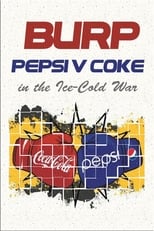
Title: Burp! Pepsi v. Coke in the Ice-Cold War
Released: May 22, 1984
Type: Movie
Burp! Pepsi Vs Coke in the Ice Cold War traces the history of these brands against the backdrop of global politics. The second world war was the perfect vehicle for Coca-Cola distribution (including to the Nazis), with bottling plants on front lines paid for by the US war department.


Title: Frontline: The Search for Truth in Wartime
Character: Himself
Released: July 19, 1983
Type: Movie
“What is the role of the media in wartime? Is it simply to record or is it to explain, and from whose point of view – the military, the politicians or the victims?”


Title: The Truth Game
Released: February 28, 1983
Type: Movie
1983. The worldwide propaganda surrounding the nuclear arms race is scrutinised.

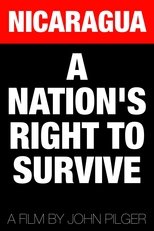
Title: Nicaragua: A Nation's Right to Survive
Released: January 1, 1983
Type: Movie
How can a country survive when its jungle borders hold 4000 hostile troops?


Title: Heroes
Released: May 6, 1981
Type: Movie
1981. The shabby treatment of returning combat soldiers from Vietnam is investigated.


Title: Cambodia: Year One
Released: September 10, 1980
Type: Movie
1980. The effect of aid to Cambodia and the extent of the country's new-found stability.


Title: The Mexicans
Released: January 1, 1980
Type: Movie
1980. A report on political repression in Mexico.

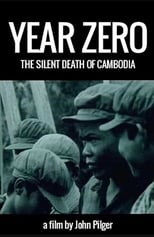
Title: Year Zero: The Silent Death of Cambodia
Released: October 30, 1979
Type: Movie
John Pilger vividly reveals the brutality and murderous political ambitions of the Pol Pot/Khmer Rouge totalitarian regime which bought genocide and despair to the people of Cambodia while neighboring countries, including Australia, shamefully ignored the immense human suffering and unspeakable crimes that bloodied this once beautiful country.


Title: Do You Remember Vietnam
Released: January 1, 1978
Type: Movie
Three years after the fall of Saigon, Pilger returns to examine the new regime


Title: An Unjustifiable Risk
Released: September 19, 1977
Type: Movie
The potential dangers of nuclear weapons and the planned new breed of plutonium-fuelled reactors are the subject of An Unjustifiable Risk, made in 1977. John Pilger begins by explaining that just a speck of plutonium, the main component of an atomic bomb, can cause cancer, but there is no absolutely safe way of storing, protecting or transporting it. Although the government is planning to build the first commercial nuclear power station fuelled by plutonium – a so-called fast-breeder reactor intended to solve the country’s energy problems – an independent royal commission has declared the process dangerous.


Title: Dismantling a Dream
Released: September 12, 1977
Type: Movie
A Labour government imposing cutbacks on the National Health Services is the theme of Dismantling a Dream. Pilger recalls the establishment of the NHS in 1948 and Health Minister Aneurin Bevan’s declaration that the “silent suffering” of the old, young, chronically sick and handicapped had no place in a civilised society. But, in December 1976, an official report revealed that thousands of children who could be saved were dying.


Title: A Faraway Country
Released: September 5, 1977
Type: Movie
Shortly after his 1977 Daily Mirror reports on dissidents in the Soviet Union, John Pilger entered Czechoslovakia undercover to film A Faraway Country… a people of whom we know nothing, a title taking the words that British Prime Minister Neville Chamberlain used to describe Czechoslovakia dismissively in 1938 when it was invaded by the Nazis.


Title: Street of Joy
Released: September 20, 1976
Type: Movie
Madison Avenue, the centre of the American advertising industry, is the subject of the last of John Pilger’s three 1976 documentaries made in the United States. At a time of recession and nine million unemployed, $26 billion a year is still being spent on advertising.

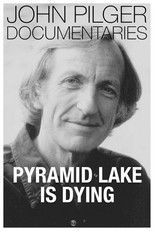
Title: Pyramid Lake Is Dying
Released: September 13, 1976
Type: Movie
The second of John Pilger’s three 1976 documentaries made in the United States. In Pyramid Lake Is Dying, he reports on the demise in the culture of native Americans and the stealing of their resources. Pyramid Lake, in Nevada, home to the Paiute peoples and once described as “one of the few remaining unspoiled natural wonders in the American West”, is drying up and its fisheries and wildlife disappearing due to changes to the local ecology made by white settlers. In addition to their natural resources, the Paiute peoples' culture and lifestyle are also under threat.

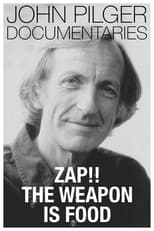
Title: Zap!! The Weapon Is Food
Released: September 6, 1976
Type: Movie
In the first of a trilogy of documentaries made in the United States, John Pilger reveals American Secretary of State Henry Kissinger’s policy of refusing aid to countries that do not support his government in the United Nations and the existence of a “Zap Office” – officially, the Office of Multilateral Diplomacy – specially set up in the State Department to monitor voting patterns.


Title: Pilger in Australia
Released: January 1, 1976
Type: Movie
1976. A candid look at the highs and lows of Australian society.


Title: A Nod and a Wink
Released: August 28, 1975
Type: Movie
In A Nod and a Wink, John Pilger demonstrates how the charge of conspiracy is being used as a means of political suppression in Britain, comparing this with statutes in police states such as Brazil and the Soviet Union, which use “a vague law” to silence and imprison people for their political or religious views.


Title: To Know Us Is To Love Us
Released: August 21, 1975
Type: Movie
John Pilger’s first documentary on the aftermath of the Vietnam War, To Know Us Is to Love Us, features a caring, humane American community in Fort Smith, Arkansas, welcoming South Vietnamese refugees just months after the United States’s defeat and humiliation in south-east Asia – while their own dead of the war lie in the town’s graveyard.


Title: Smashing Kids
Released: August 14, 1975
Type: Movie
Children growing up in poverty is the subject of Smashing Kids, 1975. John Pilger meets the Hopwoods, of Liverpool, where hunger has become a way of life during father Harry’s unemployment as his family of five survive on £1 a day. The wallpaper in their council house is torn and there are no clothes in the couple’s wardrobe and no sheets on their bed. The family have never had a holiday and Harry tells Pilger: “It would be easier to serve time than to put up with this.”

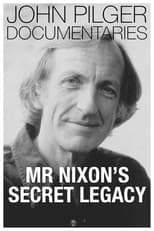
Title: Mr Nixon's Secret Legacy
Released: January 16, 1975
Type: Movie
American defence policy under Gerald Ford, successor to a disgraced president, is the subject of Mr Nixon’s Secret Legacy. John Pilger says that military thinkers in Washington are for the first time “thinking the unthinkable” and Strategic Arms Limitation Talks with the Soviet Union announced by Ford and Henry Kissinger are “no more than a sham”. Before resigning over Watergate, President Richard Nixon had given Pentagon generals a flexible strategy that would blur the distinction between conventional and nuclear warfare.

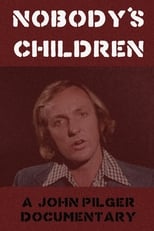
Title: Nobody's Children
Character: Presenter
Released: January 9, 1975
Type: Movie
Documentary from 1975 on the plight of mentally handicapped children held in appalling circumstances in the UK.

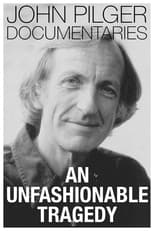
Title: An Unfashionable Tragedy
Released: January 2, 1975
Type: Movie
In 1974, when famine hit the country, Pilger returned to Bangladesh to make An Unfashionable Tragedy. It contains harrowing scenes of starving children but also puts the horrors into a geopolitical context. This is Pilger’s first documentary to highlight his theme of expendability, whereby countries with no oil, strategic value or military power are considered unimportant to the superpowers. Bangladesh, he points out, is not one of the United States’s “client states” on a priority list to receive its surplus food.


Title: One British Family
Released: June 16, 1974
Type: Movie
In the 1960s, as West Indians, Pakistanis, Indians and Africans began to arrive in Britain from former British colonies, race became a political issue. In the 1964 General Election, a swing to the Conservative Party in Labour’s Smethwick constituency and Enoch Powell’s “rivers of blood” speech on immigration four years later put attitudes towards ethnic minorities on the political and social agenda. In One British Family, made in 1974, John Pilger focuses on Gus and Julie Gill, who arrived in Britain from Trinidad in 1961. They now had three children and their own house on Tyneside, where they were the only black family in the street. “They take less from the social services than the equivalent white families,” says Pilger. “They’re not on any council’s housing lists and they’ve never been out of work.”


Title: The Most Powerful Politician in America
Released: June 9, 1974
Type: Movie
Alabama governor George Wallace made his name as a segregationist remembered for standing “in the schoolhouse door” of the University of Alabama in 1963 in an attempt to stop the enrolment of black students. John Pilger subsequently interviewed Wallace on the campaign trail during two general elections.During the second, in 1972, Wallace was shot in an assassination attempt, leaving him paralysed and in a wheelchair. In The Most Powerful Politician in America, made in 1974, Pilger looks at the likelihood that a reinvented Wallace will run for the White House two years later, manipulating contemporary American passions and exploiting his influence in the powerful “Dixie” states controlled by the Democratic Party.

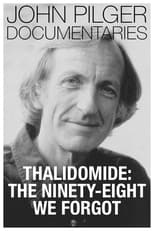
Title: Thalidomide: The Ninety-Eight We Forgot
Released: June 2, 1974
Type: Movie
Allied to a four-year Daily Mirror campaign by John Pilger that helped achieve compensation for many of the forgotten and mostly working class victims of the notorious drug prescribed to women during pregnancy. Broadcast in 1974, the theme of Thalidomide: The Ninety-Eight We Forgot was to become a Pilger hallmark: injustice.


Title: Israel: After the Earthquake
Released: May 26, 1974
Type: Movie
John Pilger documentary from 1974.

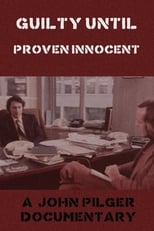
Title: Guilty Until Proven Innocent
Character: Presenter
Released: May 19, 1974
Type: Movie
Documentary about innocent people confined to prison on remand. John Pilger reports that more than half of the 500,000 people remanded in custody by magistrates each year are eventually found not guilty, fined or, as in the case of “Helen”, given a conditional discharge. Helen, charged with stealing a pair of slippers but with no previous convictions, recalls her day in Holloway Prison, London, which started at 7am when she joined 96 other prisoners in a rush to use four toilets whose conditions were “disgusting”. Between then and lunchtime, all prisoners were locked up, with just half-an-hour’s walk round a large yard for exercise. Lunch was eaten in cells, with tea at 3.30pm, before they were locked up until the following morning.


Title: Vietnam: Still America's War
Released: May 12, 1974
Type: Movie
John Pilger returns to Vietnam in 1974. America had withdrawn its ground forces at the beginning of the previous year, he reports, yet the war had not ended. During this ‘peace’, more than 70,000 soldiers and civilians had been killed.


Title: Conversations With a Working Man
Released: June 7, 1971
Type: Movie
This film expresses John Pilger’s belief that working people are seldom allowed a place in an essentially bourgeois media on their own political terms. In 1971, John Pilger travelled to the West Yorkshire industrial town of Keighley. This documentary features 36-year-old Jack Walker, a dye house worker, and is intended to present the views of a rank-and-file trade unionist: his life, struggle and hopes.


Title: Vietnam: The Quiet Mutiny
Released: January 1, 1970
Type: Movie
In this, the first of his 58 documentary films, John Pilger combines candid interviews and amazing frontline footage of Vietnam to portray a growing rift between the US military bureaucrats - "lifers" - and the soldiers who physically and mentally fight the war on the ground, the "grunts". By 1970, it is an internal sense of disillusionment and frustration born from this rift that is triggering the withdrawal of US forces from Vietnam.
